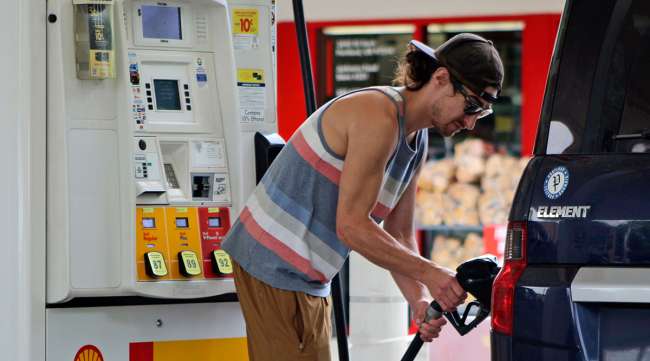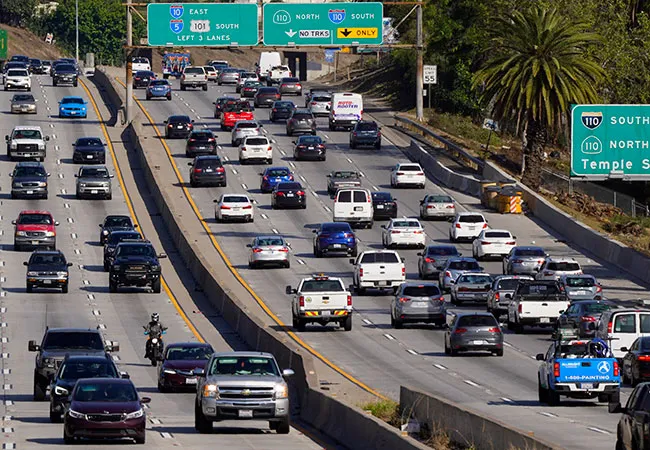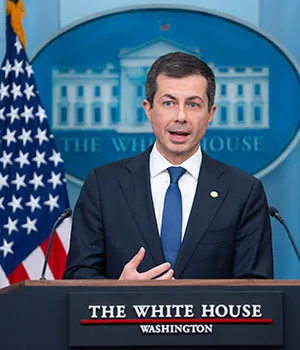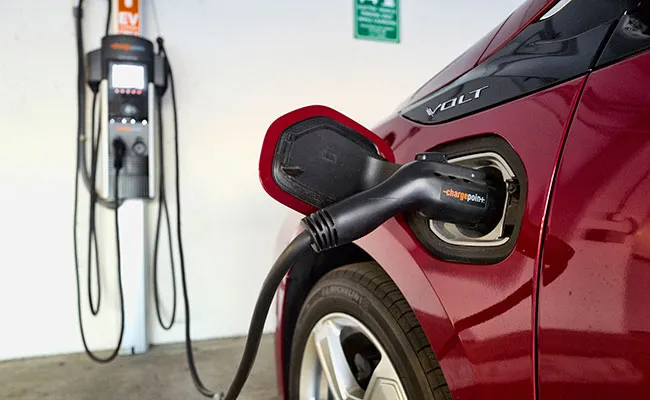Real-World Mileage Standard for New Vehicles Rising

[Stay on top of transportation news: Get TTNews in your inbox.]
WASHINGTON — New vehicles sold in the U.S. will have to average about 38 miles per gallon of gasoline in 2031 in real-world driving, up from about 29 mpg this year, under new federal rules unveiled June 7 by the Biden administration.
The final rule will increase fuel economy by 2% per year for model years 2027 to 2031 for passenger cars, while SUVs and other light trucks will increase by 2% per year for model years 2029 to 2031, according to requirements released by the National Highway Traffic Safety Administration.
The final figures are below a proposal released last year. Administration officials said the less stringent requirements will allow the auto industry flexibility to focus on electric vehicles, adding that higher gas-mileage requirements would have imposed significant costs on consumers without sufficient fuel savings to offset them.
President Joe Biden has set a goal that half all of new vehicles sold in the U.S. in 2030 are electric, part of his push to fight climate change. Gasoline-powered vehicles make up the largest single source of U.S. greenhouse gas emissions.
The 50% sales figure would be a huge increase over current EV sales, which accounted for 7.6% of new vehicle sales last year.

Vehicles drive on U.S. Route 101 in Los Angeles. (Associated Press/Mark J. Terrill, File)
Even as he promotes EVs, Biden needs cooperation from the auto industry and political support from auto workers, a key political voting bloc, as the Democratic president seeks re-election in November. The United Auto Workers union has endorsed Biden but has said it wants to make sure the transition to electric vehicles does not cause job losses and that the industry pays top wages to workers who build EVs and batteries.
Biden’s likely opponent, former President Donald Trump, and other Republicans have denounced Biden’s push for EVs as unfair for consumers and an example of government overreach.
The new standards will save almost 70 billion gallons of gasoline through 2050, preventing more than 710 million metric tons of carbon dioxide emissions by midcentury, the Biden administration said.
“Not only will these new standards save Americans money at the pump every time they fill up, they will also decrease harmful pollution and make America less reliant on foreign oil,” Transportation Secretary Pete Buttigieg said in a statement. “These standards will save car owners more than $600 in gasoline costs over the lifetime of their vehicle.”

Transportation Secretary Pete Buttigieg at a news conference in March. He says the new standards will save Americans money and lower pollution.
The highway safety agency said it has sought to line up its regulations so they match new Environmental Protection Agency rules that tighten standards for tailpipe emissions. But if there are discrepancies, automakers likely will have to follow the most stringent regulation.
RELATED: Proposed EPA Standards Are Toughest Ever for Heavy Trucks
In the byzantine world of government regulation, both agencies essentially are responsible for setting fuel economy requirements since the fastest way to reduce greenhouse emissions is to burn less gasoline.
Fuel economy figures used by the Associated Press reflect real-world driving conditions that include factors such as wind resistance, hills and use of air-conditioning. Because of those factors, the real-world numbers are lower than mileage figures put forward by NHTSA.
“These new fuel economy standards will save our nation billions of dollars, help reduce our dependence on fossil fuels and make our air cleaner for everyone,’’ said NHTSA Deputy Administrator Sophie Shulman.

Bozzella
John Bozzella, president and CEO of the Alliance for Automotive Innovation, a leading industry group, said the Biden administration “appears to have landed on a CAFE rule that works with the other recent federal tailpipe rules.’’ Bozzella was using an acronym for the fuel standards, which are officially known as the corporate average fuel economy rules.
Dan Becker at the Center for Biological Diversity, an environmental group, slammed the new rules as inadequate.
The highway safety agency is supposed to set strong standards for gas-powered vehicles, he said, “but instead it sat on its tailpipes, leaving automakers free to make cars, SUVs and pickups that will guzzle and pollute for decades to come and keep America stuck on oil.’’
The administration “caved to automaker pressure, with a weak rule requiring only a 2% improvement’’ per year in fuel economy, Becker said, adding that the rule falls short of the agency’s own requirement to set fuel-economy standards at the maximum technologically feasible level.
NHTSA said its rule includes a 10% improvement per year for commercial pickup trucks and work vans for model years 2030 to 2032. Automakers can meet the requirements with a mix of electric vehicles, gas-electric hybrids and efficiency improvements in gas and diesel vehicles.

A Chevrolet Volt hybrid car charging at a ChargePoint charging station at a parking garage in Los Angeles. (Associated Press/Richard Vogel, File)
Bozzella, the industry official, said the government soon might need to reconsider whether the fuel-economy standards are needed “in a world rapidly moving toward electrification” of the vehicle fleet.
The mileage standards are “a relic of the 1970s,” Bozzella said, “a policy to promote energy conservation and energy independence by making internal combustion vehicles more efficient. But those vehicles are already very efficient. And EVs don’t combust anything. They don’t even have a tailpipe.”
RELATED: Biden Drops Mileage Score for EVs in Bid to Spur Sales
Chris Harto, senior policy analyst for Consumer Reports, said the NHTSA rules were not strong enough to pressure automakers to ensure that new EVs are as efficient as possible.
“Today the administration is merely checking the box on the legal requirement’’ to set fuel-economy standards, he said, adding that NHTSA is hamstrung by statutory limitations that prevent it from explicitly considering EVs in setting mileage standards.
“It’s likely that this important consumer protection program will become increasingly irrelevant as EV sales continue to grow,’’ Harto said.
Want more news? Listen to today's daily briefing below or go here for more info:




